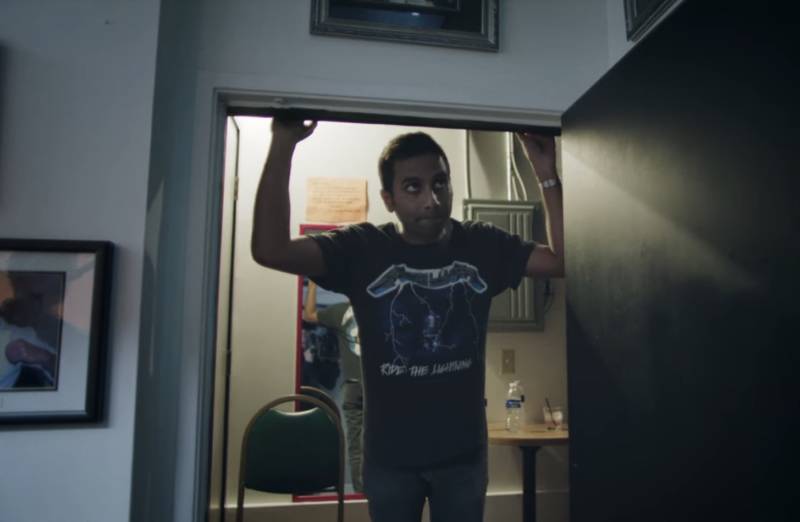As far as #MeToo revelations go, none have been more controversial or more divisive than the Babe article in which a woman calling herself Grace described a terrible night with Aziz Ansari. The piece—titled "I went on a date with Aziz Ansari. It turned into the worst night of my life"—caused such a furor when it came out, some critics believed it was misguided enough to bring #MeToo crashing to a halt forever. It didn't of course, but it did prove to be a disaster for everyone involved.
Ansari disappeared from the public eye, Grace's true identity was revealed online and the reputation of Babe.net was annihilated almost overnight, a process sped up by how poorly the author of the piece responded to criticism after the fact. There were pros and cons on both sides of the Grace/Ansari dispute, but ultimately the only good gleaned from it was the jumping-off point it gave the nation to start talking, in a wider context, about consent.
Eighteen months on and Ansari is back on our screens with a new Netflix special titled Right Now. Early reviews have focused on the reflections Ansari bookends his set with, about the sexual misconduct claims; his acknowledgment that "I just felt terrible that this person felt this way"; and the descriptions of how his life has changed since. But the most revealing material of all is hidden within the core content of the hour-long stand-up special.
Right Now is ultimately about learning curves, taking responsibility for mistakes and the individual reckonings that are part and parcel of social progress. Ansari spends much of the set examining his own less-heard-of missteps. Everything from not hanging out with his grandma enough ("I'm one afternoon good, I'm not two nights good") to fat-shaming his little cousin "on a global scale" in previous comedy specials ("He's super buff. He goes to the gym all the time. Probably because he was scarred for life"). Of praising R. Kelly in his first two specials, he says: "I’m watching this [Surviving R. Kelly] documentary. I’m terrified. I’m like ‘Man, they better not pull up them clips! I’ve had a tricky year as it is!'”


